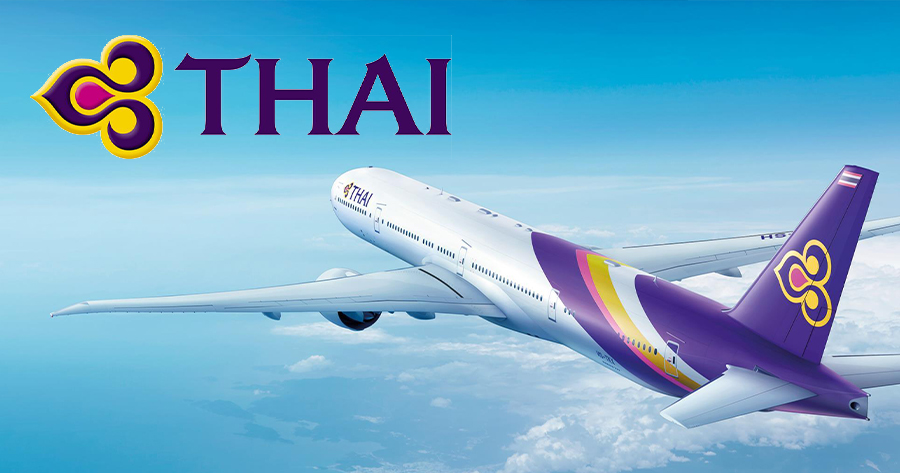The share price of Thai Airways International Public Company Limited (SET: THAI) extended gains in the second day after resuming trade in the Thai stock exchange from years of rehabilitation.
THAI rose to session high on Tuesday’s opening session at THB 10.90 per share, representing a 3.81% gain. The share price went as high as THB 11.00 per share on the first day of trade resumption yesterday, but settled slightly lower at THB 10.50 per share.
THAI is now strategically positioned for robust, stable, and sustainable growth. This is driven by a steadfast commitment to elevating operational standards and service quality, coupled with a strong emphasis on corporate governance. The airline aims to create added value for all shareholders and stakeholders, striving to become a leading, high-quality listed company within the Stock Exchange of Thailand.
On its inaugural trading day, the opening price reached 10.50 Baht per share, representing a 134.4% increase from the capital increase offering price of 4.48 Baht per share, with a market capitalization of nearly 300 billion Baht. The price briefly went as high as 11.00 Baht per share during the opening session.
Mr. Chai Eamsiri, Chief Executive Officer, Thai Airways International, expressed his gratitude to all plan directors, employees of THAI, creditors, shareholders and media for putting their trust in the company throughout the rehabilitation process.
The CEO reiterated that Thai Airways is on pace for strong operations and financial results moving forward following 10-straight quarterly profit recorded. The company is committed to a 25% dividend payout policy after the re-listing in the Thai stock exchange.
The company is aiming for 400 billion baht of revenue by 2033, the same milestone of the expansion of its fleet to 150 aircrafts to retake market share. The Board has set targets of 21% market share at the six airports managed by Airports of Thailand PCL (SET: AOT) and 35% specifically at Suvarnabhumi by 2029, a remarkable increase from 15% and 26%, respectively in 2024.
Mr. Chai eased concerns of decreasing Chinese arrivals in 2025 as Chinese tourists ranked only seventh in Thai Airways’ top-10 passenger revenue by country of destination—behind Japan, Australia, Germany, the UK, India, and Thai domestic travel. He emphasized that the decline in Chinese tourists had limited impact, as travelers from China contributed just 5% of total revenue.
As per an analysis by Tisco Securities on Friday, the firm has initiated coverage of Thai Airways with a ‘BUY’ rating and a target price of THB 10.40 per share, citing improved balance sheet strength and an earnings trajectory set to accelerate over the next three years.
Revenue is projected to increase 3%, 6%, and 13%, respectively, in 2025, 2026, and 2027, while core profit is forecast to grow at a compound annual growth rate (CAGR) of 8.6%. The company now benefits from a structurally lower debt burden, having reduced outstanding liabilities from over THB 400 billion to THB 95 billion as of the first quarter of 2025 following a successful debt-to-equity conversion, and boasts a dominant 22% market share at Suvarnabhumi Airport (BKK).
Similarly, Yuanta Securities last week echoed this bullish stance, giving THAI a ‘BUY’ rating and a target price of THB 10.70 per share. The brokerage firm highlights Thai Airways’ transformation from a struggling state enterprise into a transparent, agile private entity, now holding over THB 125 billion in cash and sufficient liquidity for its investment strategy in the coming years.
Shareholder equity turned positive at THB 55 billion, and in 2024, EBITDA after lease expenses doubled to THB 42 billion compared to targets in its rehabilitation plan. Cuts to personnel costs—a reduction to just 9.7% of revenue—have further improved cost efficiency.
Looking ahead, THAI is targeting aggressive fleet expansion, planning to nearly double its fleet from 78 aircraft in early 2025 to 150 by 2033. Orders are already in place for 45 Boeing jets, with additional plans to lease 32 Airbus aircraft, supporting anticipated growth in the Asia-Pacific and European markets.
Strategic collaborations, such as a Joint Business Agreement (JBA) with Turkish Airlines and partnerships with Airports of Thailand (AOT), will further expand Thai Airways’ international network and reinforce its ambition to make Thailand a regional aviation hub.
Yuanta forecasts Thai Airways’ core profit to reach THB 28 billion in 2025, rising to THB 31 billion by 2027. This robust outlook is underpinned by expanding capacity, continued cost discipline, favorable oil price trends, and diminishing debt service obligations.
Analysts note that Thai Airways’ improving fundamentals, strategic expansion, and effective cost management put the carrier in a strong position to reclaim market share and deliver substantial shareholder value in the aviation sector’s next phase of growth.




